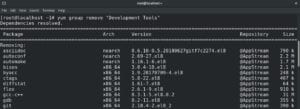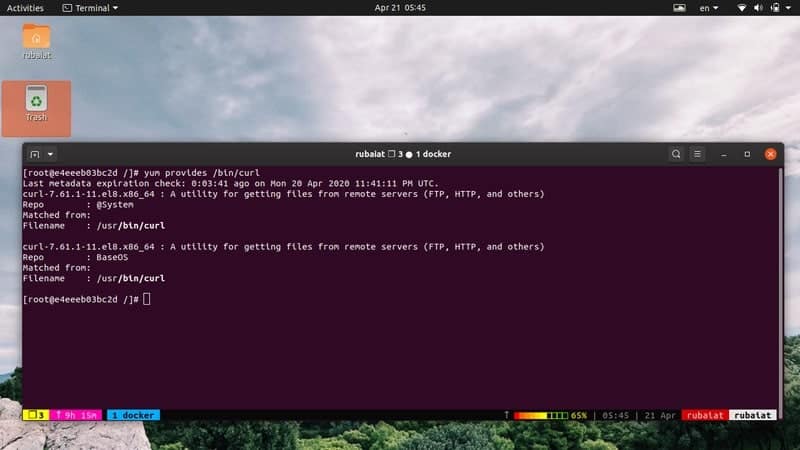


Loaded plugins: product-id, search-disabled-repos, subscription-manager As you observe below I have provided the exact version and architecture of the rpm with yum command so that yum will not consider any other rpm to perform the downgrade. So let us try to install old rpm version of bash to " 4.2.46-28.el7".

Now let us downgrade bash rpm using yum # yum downgrade /tmp/bash-4.2.86_64.rpmĮxamining /tmp/bash-4.2.86_64.rpm: bash-4.2.86_64 rpm based software dependency issues and it helps all the installers to speed-up the package management related tasks.# ls -l /tmp/bash-4.2.86_64.rpm The yum utility is a big relief on all types of. Using the local repository will help us to do a bulk update/patching the systems in the network and it saves a good amount of Internet bandwidth. By using the 'yum command' we can install all the packages directly from the internet, also we can set up a local yum repository by using the. repo extensions are stored at "/etc/" directory. The main configuration file of YUM is located at "/etc/yum.conf" and the. Yum was developed and released under GPL (General Public License), which means it comes under free software licenses that permit the end-user to modify the source code of the software. The advantage of using YUM will be automatically performing the dependency resolution in a single command, even its supports to install the packages from various 3rd party repositories without any issue of dependencies. Yum, command helps all Users and System Administrators to search for information about packages and then install, update, and remove all rpm related files from systems. Yum was introduced in RHEL version 5.10 onward and its deprecated 'up2date' command. YUM stands for Yellowdog Updater Modified, which is an RPM (RedHat Package Manager) based package management tool for Linux Systems.


 0 kommentar(er)
0 kommentar(er)
